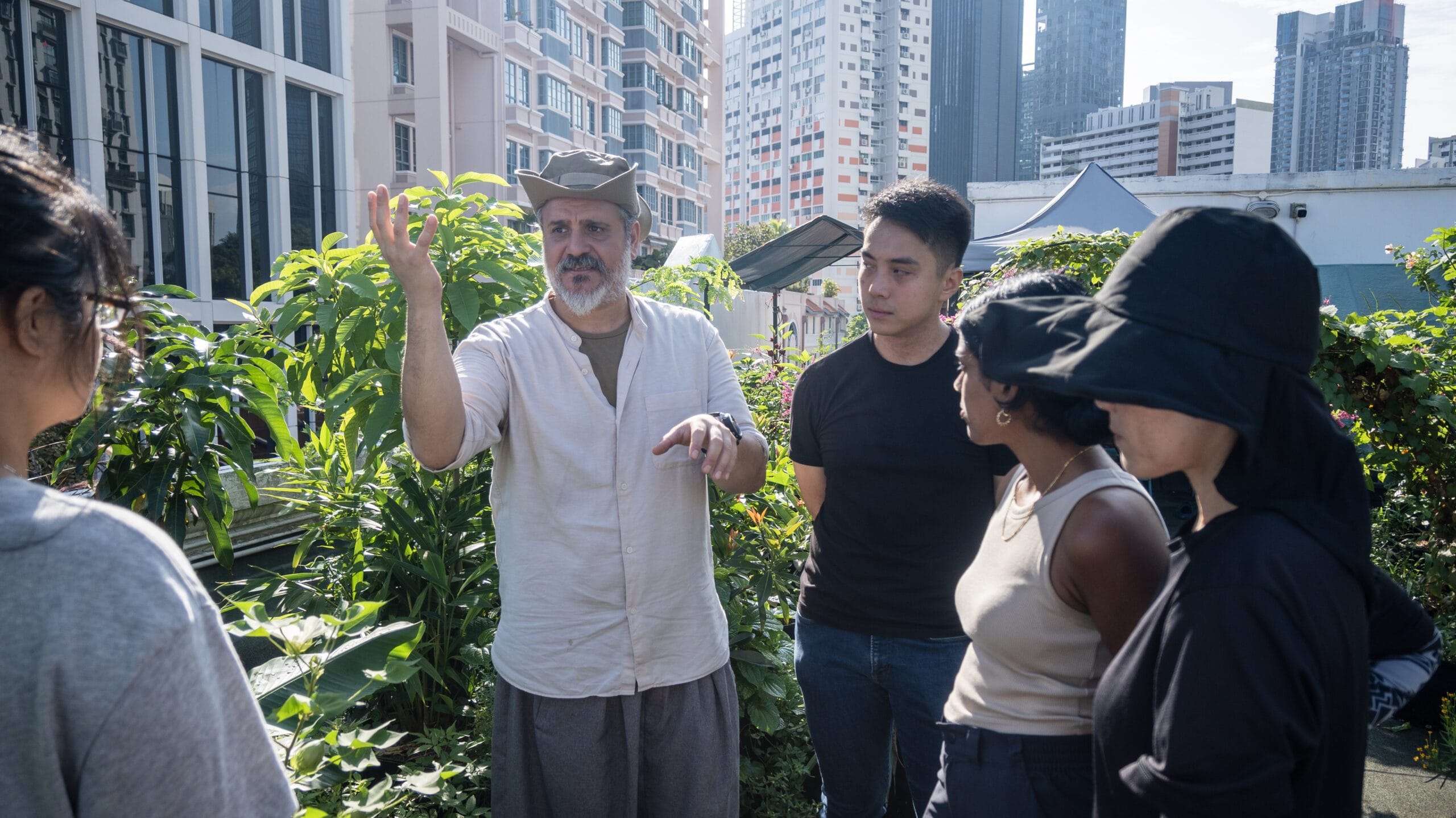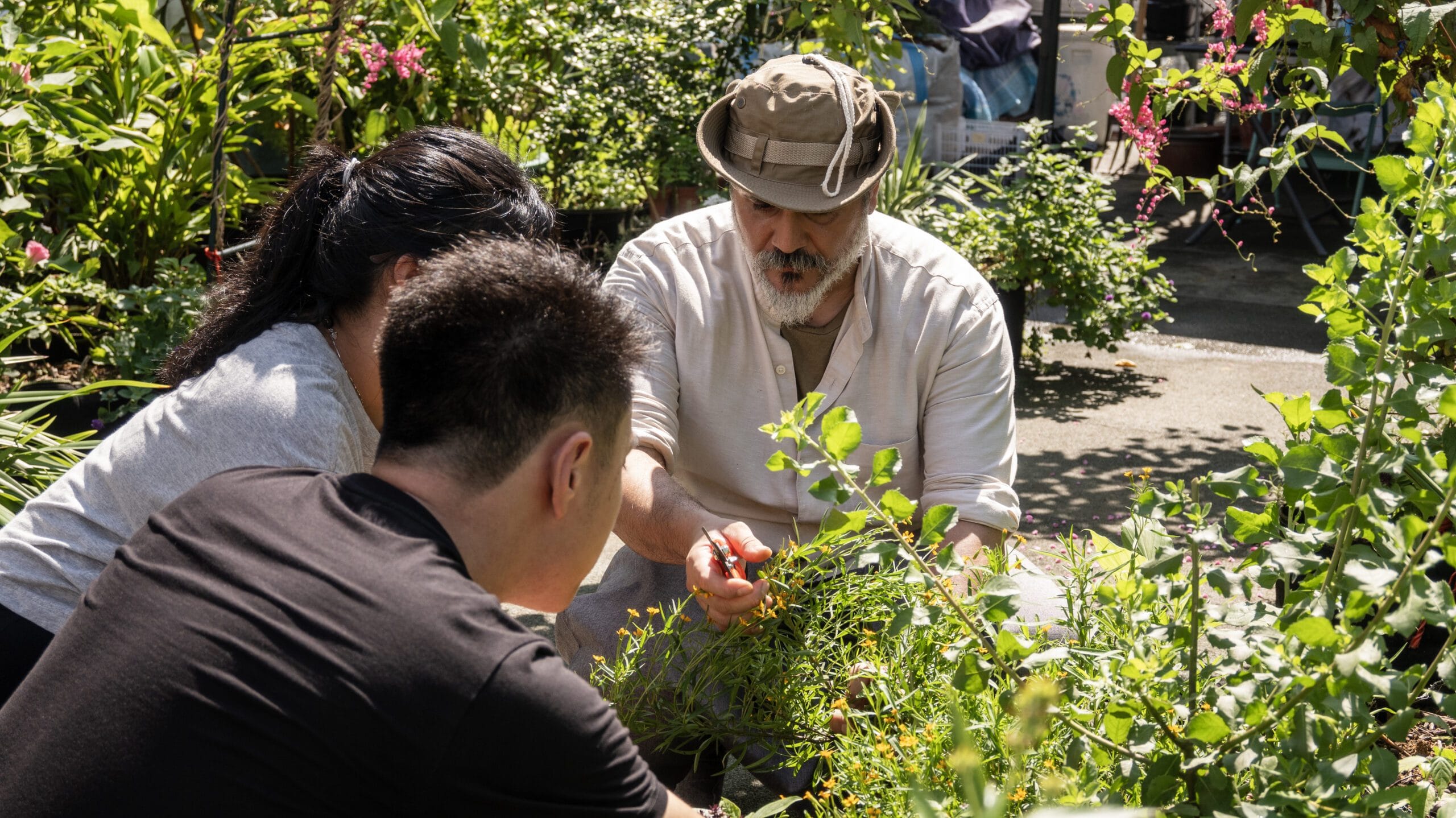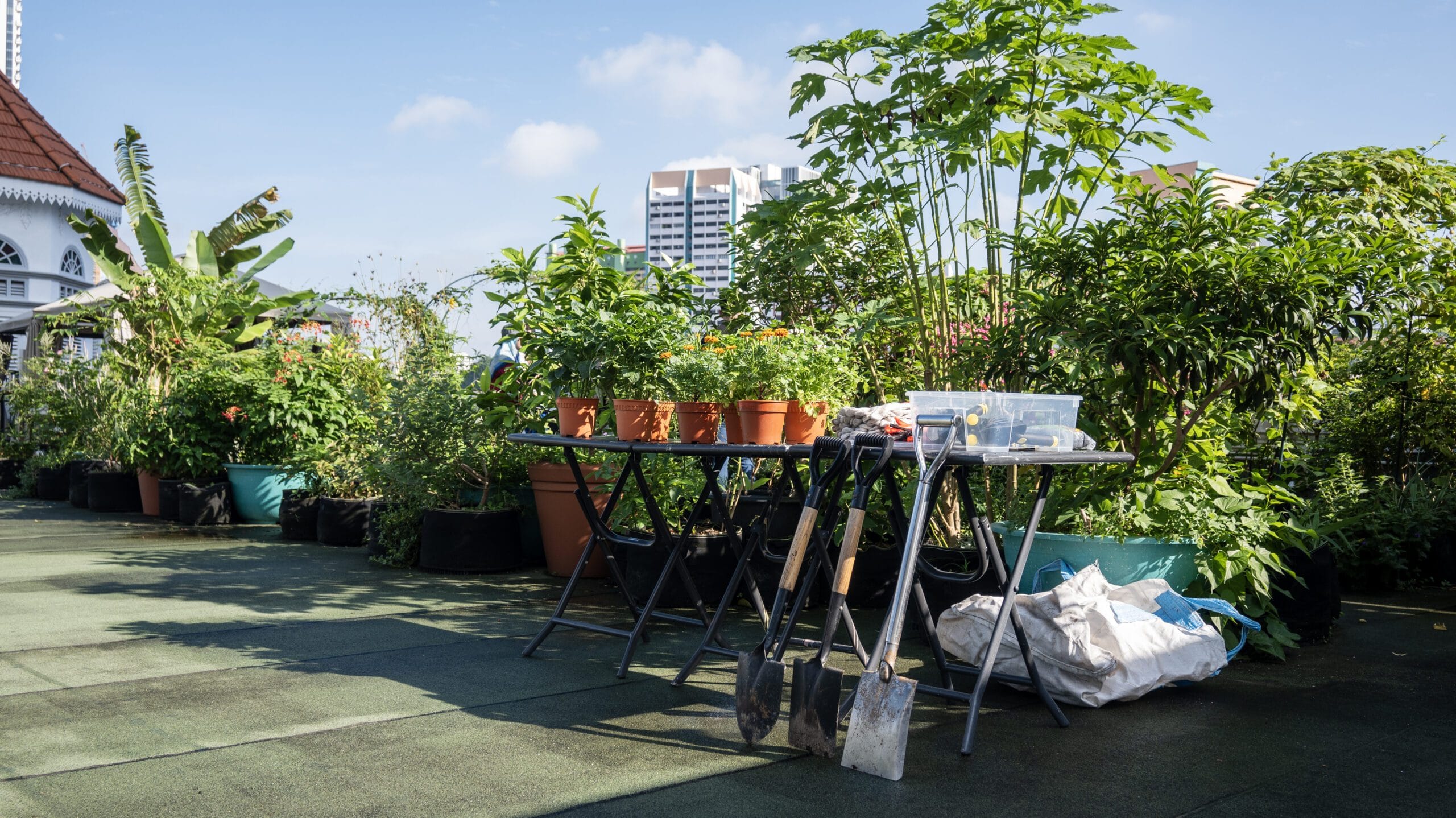“Majulah” is the Bahasa Malaysia word for “let’s go forward,” a phrase familiar to every Singaporean from the national anthem. For Nagib, it represents a rallying cry for a greener, more sustainable future.
Nagib envisions his rooftop garden as more than just a place to grow plants—it’s a space for people to learn, connect, and reflect. While the space is still growing, he wants the garden to be fully accessible, so that people can see what’s possible when we work with nature, not against it.
Through Majulah Green, Nagib engages with communities across Singapore, from schools to elderly groups. One of the initiative’s standout projects turns schools into plant nurseries. Students foster fruiting plants like chilies, which are later sent to organic farms to be grown and harvested for the community. To him, he is teaching young people how to nurture and see their efforts contribute to a larger system—a cycle of care.
Nagib also works with the elderly, whom he affectionately calls the “silver generation.” For retirees who may feel isolated, gardening offers a way to connect with others, get outside, and rediscover a sense of purpose.
“It’s good to be under the sun, to get vitamin D, and to have people to talk to,” he said.
One of Nagib’s most memorable experiences comes from his work at a Cerebral Palsy School, where he trains students in gardening. He recounted a moment when a simple stick from a lemon tree, planted as a support for another plant, began to sprout leaves. Weeks later, it grew into a thriving lime tree.
“The kids were amazed,” he said. “It was a story of hope—proof that life can come from the simplest things. When you’re a farmer, you start to believe in miracles, because they happen every day in the garden.”
Nagib also shared insights about his upcoming project — the GREEN Initiative (Growth, Resilience, and Education for Eco-Friendly Neighbourhoods). He noticed a lot of unkempt community gardens that have been left unattended and turned into junk storage.
Hoping to unlock the potential of these gardens with his green thumbs, Nagib wanted to revamp as many as possible into inclusive and accessible spaces that foster sustainability, education, and community engagement.
Besides revitalising the green spaces, he also plans to teach local communities to take care after them and lead volunteer workshops one day.
“I want to transform these neglected areas into vibrant green spaces”, said Nagib.




